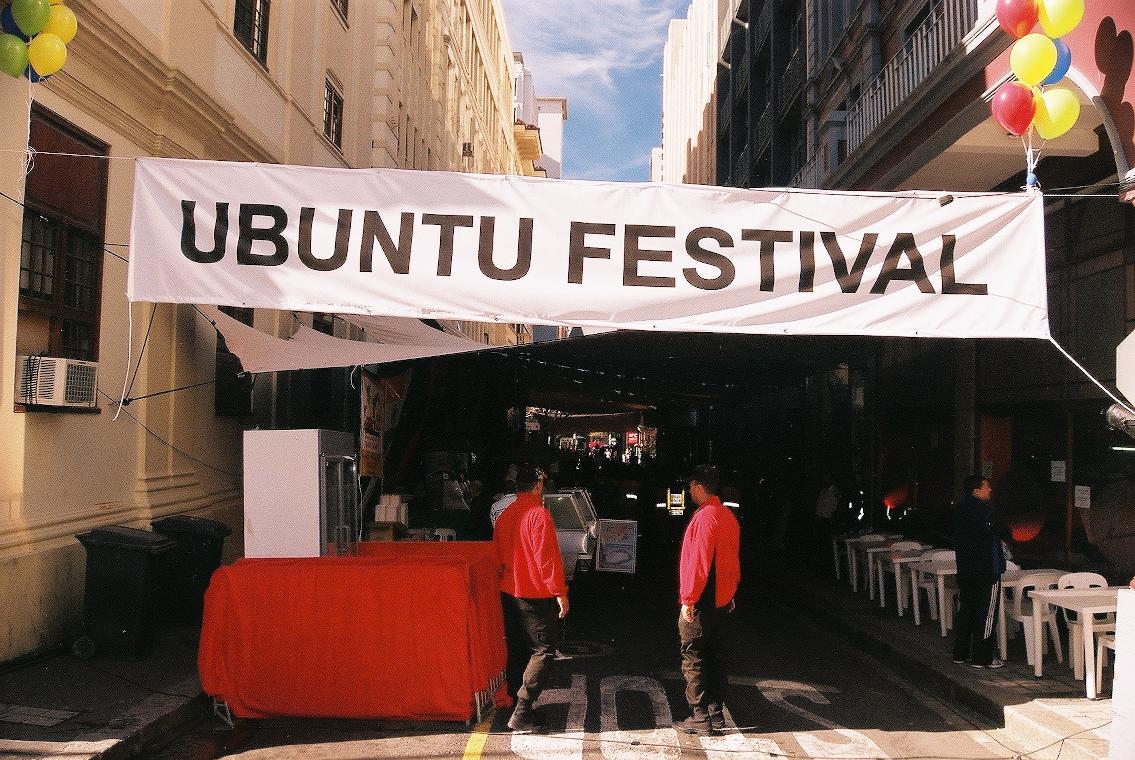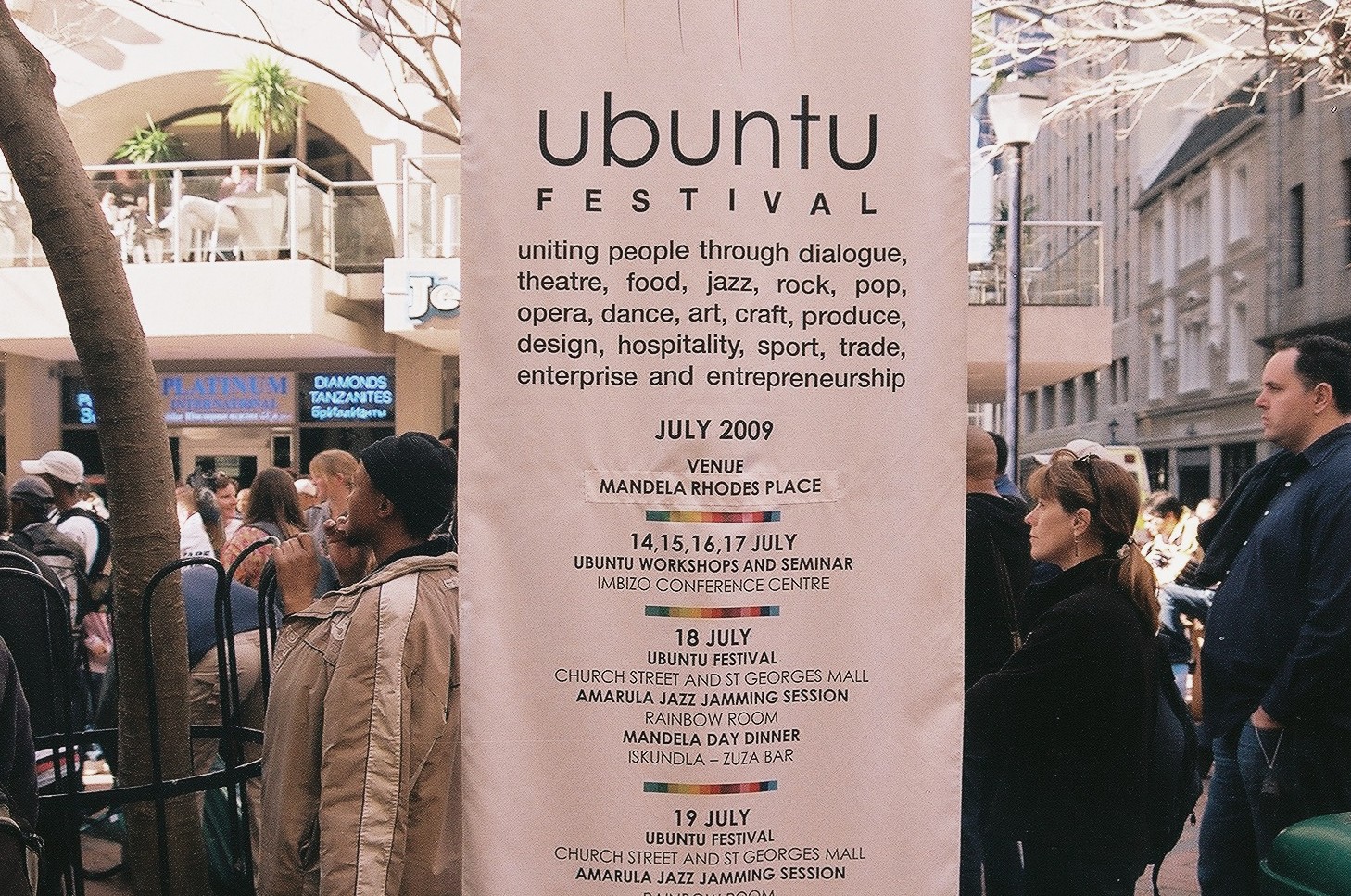
Unity in Diversity vs. Disunity in Ideologies (UPDATED)
Introduction
Ethnocentrism: Evaluation of other cultures according to preconceptions originating in the standards and customs of one’s own culture [1] – Oxford Dictionary
Ethnocentrism is inherent in all human beings. It has advantages and disadvantages. Since it cannot be removed or reduced completely, without negative side effects, it would be better to find ways to work with it positively.
Positive ethnocentrism would allow for the natural maintenance and preservation of a person’s original culture and identity while also allowing for and motivating an appreciation of other cultures within the same environment. Unity in Diversity [2] could be the perfect example of positive ethnocentrism, because it can deliver consistent positive results if fostered, cultivated and maintained consistently.
Implementing Unity in Diversity would depend on both the will and the goodwill of all parties involved. Unity in Diversity has a weak point in that it is a relatively fragile concept that is vulnerable to being disrupted by intrusive forms of negative ethnocentrism such as identity politics and various forms of tribalism [3], old and new.
Identity Politics: A tendency for people of a particular religion, race, social background, etc., to form exclusive political alliances, moving away from traditional broad-based party politics [4] – Oxford Dictionary
Values and Identity
Our foundational value systems are mainly derived from our cultures, and a strong part of our individual identity resides in our value systems. What we stand for determines, to a large extent, who we are as individuals and as groups. When people lose a part of their identity on an individual level – because they have lost significant parts of their value system which by its nature is embedded within the roots of their cultural foundations – they are likely to experience an identity crisis.
Insecurity could result from an identity crisis which may lead to a defensive attitude and a tendency to view others as a threat – or as adversaries – instead of seeing them as equals. Confidence within oneself is needed to view others as one’s equals, even if they are different to you. Having a lack of confidence and a defensive attitude could reduce one’s ability to enter a neutral state which is required for understanding and respecting other cultures.
South Africa as a Case Study
Post-apartheid, democratic South Africa – a country with a history of division and separation, as well as reconciliation and integration – has not escaped negative ethnocentric behaviour. That country’s post-1994 transition to social cohesion is in the process of being eroded by identity politics.
Identity politics arrived in South Africa around the time of the passing of Nelson Mandela in 2013 and has since caused serious damage to many of the positive gains made towards having a stable, democratic, multicultural society. As long as identity politics prevails as a major influence in how personal identities are formed or defined within the Republic of South Africa, negative ethnocentrism is likely to remain as a disruptive and destabilising force within its society.
In South Africa, one form of negative ethnocentrism (a past system of segregation called ‘apartheid’) has been replaced by another (a form of modern tribalism known as identity politics) with a short period of positive ethnocentrism in-between. Between 1994 and more or less 2012, the concept of Unity in Diversity prevailed, and its sentiment could be summarised as: We are uniquely different, yet equal at the same time and we are all confident about who we are within our own culture groupings, meaning that we have true diversity. As individuals and culture communities, we are all committed to working on building a [new] country together with a common goal of arriving at prosperity and opportunity for all.
The African philosophy of ubuntu [5], which revolves around social cohesion borne out of a sense of brotherhood and magnanimity [6] towards others, including those who are not from one’s own group, is perfectly aligned with the concept of Unity in Diversity. Ubuntu was often cited by Nelson Mandela as being a requirement for having Unity in Diversity, because the spirit of ubuntu overcomes the need for vengeance and retribution. Ubuntu is a humanist concept that originates from the Zulu phrase “ubuntu ngmuntu abantu”, meaning that a person is a person through other people. This can be interpreted as meaning that it is only by having respect for others and treating them with respect that one can be respected by others and can have respect for oneself.
Identity politics has, in recent years (from around 2013 onward), turned that approach on its head, because it functions from an in-group versus out-group perspective, resulting in the in-groups viewing the out-groups as adversaries. Identity politics has the tendency to cause in-groups to view themselves as victims of out-groups, thereby disempowering themselves by taking on the victim role.
This is particularly noticeable within the South African context today, where instead of focusing on the benefits of equal opportunities and the added advantages of strong affirmative action policies for the previously disadvantaged, brought by post-apartheid democracy, the idea of being victims of oppression based on past history is prioritised and emphasised even more than before.
In light of powerful affirmative action policies, those with a sense of victimhood are, in reality, often in an advantaged position in relation to educational and job opportunities; however, they continue to view themselves as disadvantaged because within identity politics there lies currency in victimhood and all in-groups are vying for this currency.
One could argue that although the concept of Unity in Diversity (as expressed on the new South African coat of arms [7] and embraced in general by South Africans from 1994 to 2012) would, under normal circumstances, be the best possible philosophical approach to counter negative ethnocentrism, it does not seem to be borne out in practice. Unity in Diversity is evidently no match to identity politics when introduced into a fragile young democratic environment such as the post-apartheid South African one.
Although traditional tribalism has always been present in the country to an extent, identity politics –which could be described as ‘post-modern tribalism’ – did not originate in South Africa but came across from North America and Western Europe. Since its arrival, it has proven to hold great appeal especially to younger people. In a general sense, this has a lot to do with a general deterioration in the higher education system, with university campuses having served as fertile ground for identity politics to flourish. The South African higher education system being modelled on the Western one, therefore, facilitated the cross-pollination of identity politics into the local environment from abroad. The proliferation of social media has also played a role.
Due to the revolutionary history of South African politics during the apartheid era, identity politics caught on rather quickly when introduced locally – and the philosophy of Unity in Diversity was sidelined and left behind in no time. This points to the fact that the spirit of revolution does not seem to require oppression or genuine injustices to come alive, but that it can have an energy all of its own and that in some cases more or less any justification would do.
It also points to the fact that ‘Unity in Diversity’ was not something that younger South African citizens deeply embraced – which mainly had to do with a generational lack of context and lack of understanding of the processes that led to adopting the concept of Unity in Diversity in the first place. One could go as far as speculating that young South Africans do not have a full appreciation for the value of peace and harmony, due to not having experienced the turmoil in South Africa at the height of the apartheid years.
Unity in Diversity demands a certain level of maturity and both strong individual and group identity to function. Globalisation has – over the years – caused a weakening of the cultural identity of culture groupings. Weak cultural identity combined with weak personal identity can cause people to be drawn to identity politics because they could find identity in political ideology which would substitute for the lack of finding it in strong personal or cultural values.
Identity found in non-cultural group settings is insecure by its nature and tends to automatically revert to the in-group versus out-group dynamic. Although one may have expected that the weakening of cultural identity would have increased cultural relativity – which in turn would have reduced ethnocentrism – one is left with the perception that it has, in fact, had the opposite effect. Ethnocentrism does not disappear when genuine cultural diversity is weakened – it just shifts to identity politics.
The ‘ethno-’ [8] in the word ‘ethnocentrism’ refers to the cultural, linguistic, ethnic and national factors that usually lead to conventional group formation. The ‘-centrism’ part in the word refers to the general tendency of these groups to naturally lean towards exclusivity – for example, language groups are naturally exclusive to other languages. Although ethnocentrism is often considered a negative phenomenon in general, it is worth noting that – without some exclusivity – groups being different from other groups would not be possible and the result would be a much less diverse world.
It would probably be best to view conventional ethnocentrism as an evolutionary mechanism that has a positive function in terms of forming and creating more natural diversity, but with potential far-reaching negative side effects when not kept in check – as history has proven. Extreme negative ethnocentrism has been responsible for some of the worst totalitarian regimes and genocides in history.
One is thus left with the following question. Which type of ethnocentrism is the preferred one? Since ethnocentrism cannot be avoided or removed altogether, because it is a foundational factor in the formation of culture in the first place, would we rather have a strong, genuine, cultural diversity with its natural mild-to-strong (conventional) ethnocentrism, or would we rather have identity politics which typically has strong-to-very strong (unconventional) ethnocentric behaviour?
Both forms of ethnocentrism, when strong enough, can lead to serious polarisation. However, identity politics seems to specifically thrive on polarisation, because it essentially comes down to being a political phenomenon of opposing ideologies requiring consistent confrontation to maintain itself.
This writer would like to make the case that in established multicultural societies, such as the South African one, a middle way is still possible to maintain stability. Unity in Diversity remains a solution, because it can reduce negative ethnocentrism and transform it into positive ethnocentrism while retaining one’s natural cultural and personal identity at the same time.
It is, however, crucial that personal and cultural identity is preserved and maintained, which is worth repeating. This combination will provide for the natural confidence and contentment within one’s own person and within one’s own culture, while also being comfortable with other cultural and ethnic groupings being present in the same country. Respect for oneself and one’s own culture enables and empowers one to have respect for other cultures within the same land.
If both parenting and the education system fail in this regard and if personal and cultural identity become diluted and weakened, the concept of Unity in Diversity would not be understood, supported or believed in sufficiently for it to be strong enough to act as a bulwark against intrusive identity politics.
When cultural identity is reduced significantly, individual insecurity can set in to the extent that identity politics can become a refuge. Take the foundations away and Unity in Diversity gives way to disunity in opposing ideologies through identity politics.
Solution and Approach
Unity in Diversity is positive ethnocentrism, while identity politics – due to its confrontational manner – is negative ethnocentrism. Unity in Diversity is needed for having balanced societies within established multicultural and multi-ethnic environments, countries like South Africa and India being cases in point. As an aside, Unity in Diversity also happens to be the motto of the European Union [9].
Unity in Diversity is a higher state that requires effort because, as individual carriers of our cultures, we have to first become conscious of our own tendencies towards ethnocentrism – since all people are, to an extent, ethnocentric. We then have to become more conscientious about how other cultures within our environments are equal to us from a human rights’ perspective, even if they are different to us. Such an outlook has to be fostered, cultivated and maintained on an ongoing basis because it often does not come naturally.
The best, balanced approach would be to learn how to truly value and appreciate one’s own culture while learning that other cultures also truly value their own cultures. Such a basic realisation can foster mutual understanding in how we are all united in deeply valuing our own unique – but diverse – heritage and origins which would cultivate the necessary respect for each other which is a requirement for basic social cohesion.
Understanding the value of preserving culture is very important, but equally important is understanding the value of preserving harmony and balance among cultures and nations. In this context, acknowledging cultural differences is important because they are the foundations of genuine cultural diversity. By simply using ‘diversity’ as a superficial buzzword – that refers to ethnic integration without acknowledging cultural differences – could lead to those unacknowledged differences being expressed negatively through identity politics.
After apartheid ended in 1994, South Africa set an excellent example to the world of how social cohesion is possible in multicultural nations through the successful implementation of Unity in Diversity. This lasted for close to two decades, which is one reason why South Africa makes such a good case study. Unity in Diversity is failing in South Africa today because significant portions of society have eagerly embraced identity politics since it arrived in the country.
This does not mean that Unity in Diversity cannot work – it can, as South Africa has already proven. However, it does not maintain itself, which is also being proven. Once the appetite for Unity in Diversity is lost, it could be difficult to recover since identity politics can cause a lot of new animosity and resentment …
Then and Now
Never, never and never again shall it be that this beautiful land will again experience the oppression of one by another. – Nelson Mandela (Inaugural speech, 11 May, 1994)
The objective of the anti-apartheid struggle during the 1980s and early ’90s was to arrive at equality across the board for all races. The irony is that identity politics is taking modern-day South Africa back to race-based separation (through ethnic nationalism, i.e. African nationalism), which was essentially what the system of apartheid was about with a minority ethnic group dominating the other races (through white nationalism). This time, it is the majority group that is dominating the rest.
Although the domination of minority groups is considered to be abhorrent in modern Western democracies, within the reasoning of identity politics such domination is considered to be justified in the South African context due to the injustices of the past. The problem with this reasoning is that all minority groups are now being dominated in South Africa, not only the one that was ruling the country under apartheid. This brings us back to square one, but just in a reversed format. In other words a complete power-shift has taken place in the name of unity, which ended up just being a fleeting intermediate stage.
Conclusion
My belief is that Unity in Diversity remains a challenge well worth undertaking to bring about a more harmonious world, but the fragility of the concept should not be underestimated. In practice, we have certainly not arrived at consistent Unity in Diversity because of disruptive identity politics … and therefore the jury is still out on the sustainability of the concept in itself. Perhaps it would remain to be an ideal that’s worth aiming for, but due to its failure in South Africa would always be treated with some skepticism. At this stage that would seem the most likely outcome.
In light of developments in South Africa – which could be considered a prime test case for Unity in Diversity in the world – becoming aware of how we could end up undermining the social cohesion in our own countries by embracing identity politics would go a long way to motivate genuine cultural identity development and towards an understanding of the importance of not losing one’s own personal or cultural identity altogether.
By JJ Montagnier
JJ Montagnier is an independent writer. He has a personal interest in conflict resolution, democracy and social cohesion. He has spent time in South Africa, Ireland (north and south), the Middle East, and Central and South America (among other places) to learn first-hand about the social and political issues affecting the countries and societies in those regions. The views and opinions expressed in this essay are those of the writer.
Publishing Details:
Original version published on Writerbeat.com (now defunct) on July 16, 2018.
This text has seen many revisions since then.
Final update performed in April 2021.
References:
1. Ethnocentrism
Evaluation of other cultures according to preconceptions originating in the standards and customs of one’s own culture
https://www.lexico.com/definition/ethnocentrism
2. ‘Unity in Diversity’
https://en.wikipedia.org/wiki/Unity_in_diversity
3. Tribalism
1.) The state or fact of being organised in a tribe or tribes
1.1) The behaviour and attitudes that stem from strong loyalty to one’s own tribe or social group
https://www.lexico.com/definition/tribalism
4. Identity Politics
A tendency for people of a particular religion, race, social background, etc., to form exclusive political alliances, moving away from traditional broad-based party politics
https://www.lexico.com/definition/identity_politics
5. Ubuntu
A quality that includes the essential human virtues: compassion and humanity
‘there is a need for understanding not vengeance, ubuntu not victimization’
https://www.lexico.com/definition/ubuntu
6. Magnanimous
– generous in forgiving an insult or injury; free from petty resentfulness or vindictiveness
– to be magnanimous toward one’s enemies
– high-minded; noble
A just and magnanimous ruler; Proceeding from or revealing generosity or nobility of mind, character, etc.; A magnanimous gesture of forgiveness
https://www.dictionary.com/browse/magnanimous
7. South African Coat of Arms
https://en.wikipedia.org/wiki/Coat_of_arms_of_South_Africa
8. ethno-
word-forming element meaning “race, culture,” from Greek ethnos, “people, nation, class, caste, tribe; a number of people accustomed to living together” (see ethnic). Used to form modern compounds in the social sciences
https://www.etymonline.com/word/ethno-
9. Motto of the European Union
https://en.wikipedia.org/wiki/Motto_of_the_European_Union
Copyright © · All Rights Reserved · Gypsy Café



6 Comments
Jacques – another shared Time and Place of thought. Diversity was the key for 12 IMIX discernment this morning. There is SO MUCH genius in one another to share and Know!
love, in lak’ech, Debra
Debra, your thoughts are much appreciated. The synchronicity of thought that occurs through the energies of the days are truly enlightening and revelatory – unity through diversity – sharing similar thoughts uniquely as a contribution to the whole 🙂
Thank you for promoting the values and ideals upon which human relationships must be based if we are to continue living together in a world that increasingly requires nondestructive cooperation. In today’s world, we can no longer afford to go on the way we always have. Whereas it may be true that conflict is endemic to the nature of our reality, it definitely is NOT true that we must continue to HANDLE our conflicts in the same old, destructive ways.
You have given a good example using ethnocentricity. You are very wise in understanding that we need not eliminate ethnocentricity, any more than we need to eliminate conflict— but we do need to eliminate the self- and -other destructive ways in which we let our ethnocentricity play out in our relationships to others.
Nicely done. Thank You.
Jerry DeGregory (PhD Sociology, from University of Missouri, USA)
Thank you very much for your feedback, professor. I agree with you that conflict resolution is of huge importance today in all spheres of life, it is not something limited to foreign affairs or geopolitics anymore. Therefore we must work on understanding the human condition and always try to find the middle way. With concerted effort I believe we can achieve this goal if we set our minds to it. It is however important for us to increasingly understand human behaviour on a deeper level. For example we don’t see the concept of ethnocentrism explained or debated much, yet it is an underlying factor of what is best described as tribalism, which is still very much with us.
Having experienced and seen some of the complexity in dealing with differences between communities and groups in terms of achieving ongoing social cohesion (always a fragile state of affairs), in South Africa and Northern Ireland, assisted in writing this piece. I hope this approach to ethnocentrism could be of benefit on a practical level to reduce the polarisation that seems to be a feature of many countries were diversity is a factor. Please feel free to share far and wide.
Thanks again for reading and for taking the time to comment.
Sincerely,
J.J. Montagnier
Yes, Jean-Jacques too bad things are not going swiftly, hope it will change for the better, but I will not hold my breath, we a Humans need to reach consciousness, and battle ignorance, instead of each other, but unfortunately every individual need to be educated, from cradle, to the grave, and that has prove to be a difficult task, too many lapses, and gaps in between, things can change in twenty years as you describe.
Thank you Mr Anaya for your comment. For me the current situation can only be dealt with when we apply morality and ethical standards equally, because actually the issue of racism is used to claim moral superiority by people who are not only guilty of the same, but are often engaged in it more than the people they tend to blame and accuse. We also see that people are very comfortable in denouncing racism (old and new) as long as it is of a particular kind, i.e. by one particular ethnicity upon another particular ethnicity, but when it happens in reverse, they refuse (!) to acknowledge it or to call it out. This is a real problem, because what we have then is a kind of moral tyranny that is pathological and driven purely by ideology.
This tendency is now so wide-spread that it could very well lead to real tyranny (if it isn’t already …) Any and all kinds of hypocrisy and double-standards have to be called out, have to be pointed out continuously and consistently (persistently!). That is the ONLY remedy to regain and maintain balance. Hypocrisy is the ultimate enemy – and also the ultimate evil, because it allows evil to be done in name of good. This is not simply the banality of evil, because that is when people are cogs in a bureaucratic wheel who follow orders, because they are unthinking and indifferent and they comply with order from authority (Hannah Arendt explored this theme very well).
No, it is something different and it’s worse. This kind of evil – hypocrisy and double-standards – is pathological when it is deliberate, which seems to be the case in most cases related to the subject of racism nowadays – people seem to be very aware that they have double-standards when it comes to these issues, yet they persist and practice their double-standards aggressively anyway.
We need a return to God. I’m afraid that’s the only force that can save humanity from this dark age we are going through.